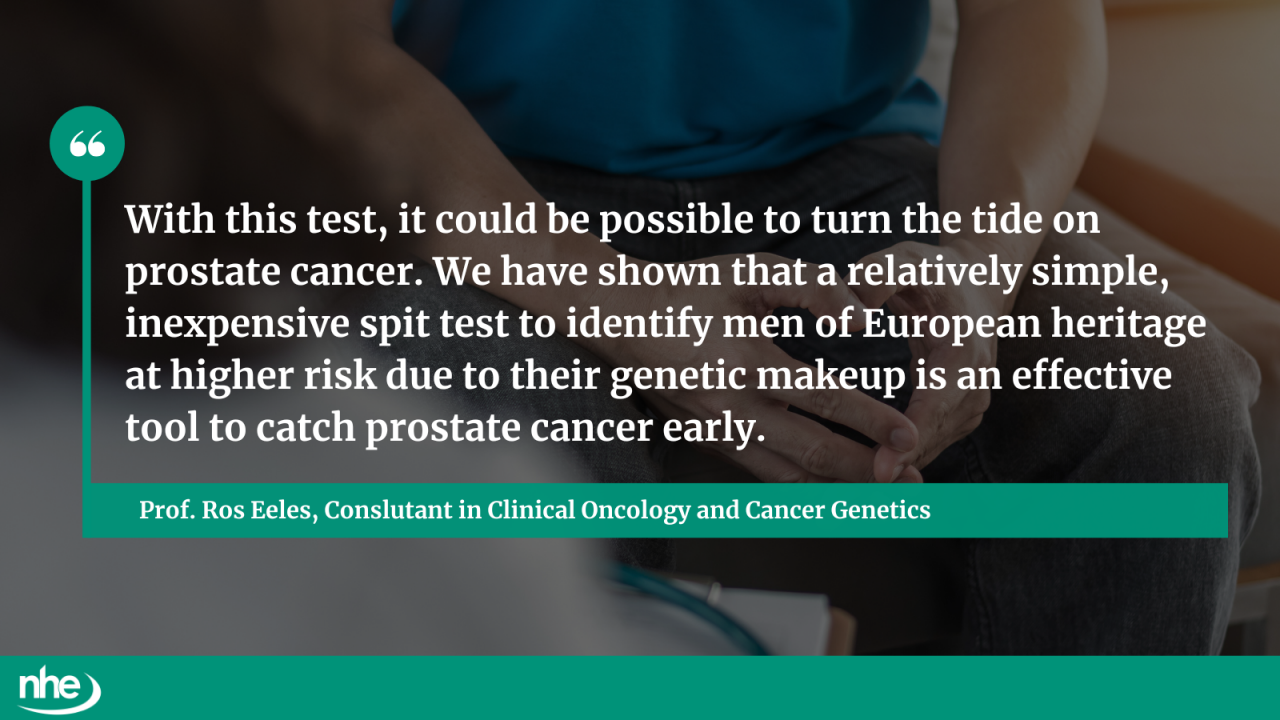A new NIHR-funded study suggests that a simple at-home spit test may be more accurate at detecting prostate cancer than the current prostate-specific antigen blood test.
The BARCODE 1 study calculated the risk of prostate cancer from DNA extracted from saliva, known as a polygenic risk score.
The study, partly funded by the NIHR Royal Marsden Biomedical Research Centre and supported by the NIHR Research Delivery Network, was published in the New England Journal of Medicine. It found that for men with the highest risk score, the PRS saliva test is a better tool than the PSA test, which measures levels of a protein called prostate-specific antigen that can be elevated in men with prostate cancer.
The PSA test is currently used to identify men at higher risk of prostate cancer due to age, ethnicity, or symptoms. However, it falsely indicates prostate cancer in men three out of four times and detects slow-growing cancers that are unlikely to be life-threatening, leading to unnecessary MRI scans, biopsies, and treatments.
Consultant in Clinical Oncology and Cancer Genetics at the Royal Marsden NHS FT, and Professor of Oncogenetics at the Institute of Cancer Research, Professor Ros Eeles said:
“With this test, it could be possible to turn the tide on prostate cancer. We have shown that a relatively simple, inexpensive spit test to identify men of European heritage at higher risk due to their genetic makeup is an effective tool to catch prostate cancer early.”

Researchers trialled the new DNA saliva test, which looks for genetic variants linked to prostate cancer. For men with the highest genetic risk, the test:
- Detected cancers missed by the PSA test alone.
- Identified a higher proportion of aggressive cancers than the PSA test.
- Accurately identified prostate cancer missed by MRI scans.
The study calculated the PRS of 6,142 European men aged 55 to 69, recruited from GP surgeries. The score is based on 130 genetic variations linked to prostate cancer. Men with the highest 10% of risk scores were invited for further screening, and 40% were diagnosed with prostate cancer, compared to 25% with the PSA test.
Previous studies have shown that the PSA test picks up many cancers that do not require treatment. The PRS saliva test identified a higher proportion of aggressive cancers and was more accurate than MRI scans for men with high genetic risk.
The £42 million TRANSFORM trial, funded by NIHR and Prostate Cancer UK, will directly compare the saliva test to the PSA blood test and MRI scan to assess its benefits for men with low genetic risk. Researchers estimate that the spit test could identify up to 12,350 people earlier, saving the NHS around £500 million a year.
Image credit: iStock



















